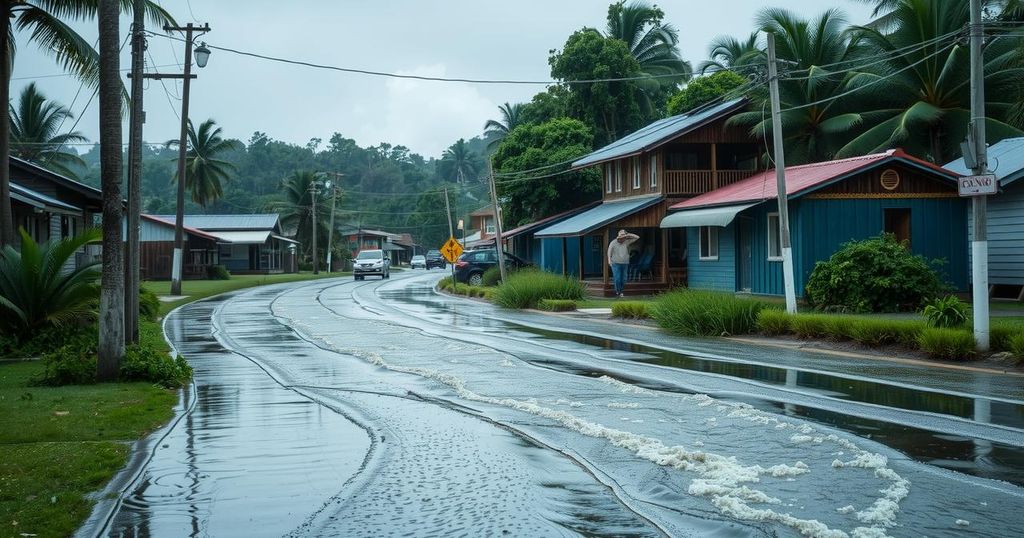Tropical Storm Sara has isolated over 1,700 villages in Honduras due to severe flooding, with one confirmed death and more than 110,000 people affected. The storm delivered an unprecedented rainfall of 500mm in some areas, leading to extensive damage to infrastructure. Prominent figures, such as President Xiomara Castro, have issued warnings to safeguard communities. This event illustrates the intensified consequences of natural disasters amid ongoing climate change.
Tropical Storm Sara has caused significant disruption in Honduras, leading to the isolation of over 1,700 communities due to severe flooding. The slow-moving storm, which formed in the Caribbean Sea on Thursday, unleashed torrential rainfall for four consecutive days, particularly impacting northern Honduras before shifting towards Belize and Mexico. Although Honduran authorities have reported only one confirmed fatality, at least 110,000 people have been affected by the storm’s aftermath. The rainfall was so intense in some regions that it reached 500 millimeters (approximately 19.7 inches), resulting in swollen rivers and widespread structural damage, including the destruction of nine bridges and damage to nineteen others. Furthermore, numerous highways became impassable due to landslides. In response to the imminent threat, President Xiomara Castro instructed residents near riverbanks to seek refuge, a warning acknowledged by thousands. The storm is recognized as the 18th named storm of the Atlantic hurricane season and the third within the current month. Meteorologists attribute the increased severity of these storms to elevated sea surface temperatures, emphasizing the role of climate change in exacerbating such natural disasters.
The impact of Tropical Storm Sara is emblematic of the growing frequency and intensity of tropical storms in the Atlantic, a phenomenon increasingly linked to climate change. These natural disasters pose significant challenges for countries like Honduras, characterized by vulnerable infrastructure and communities that often lack sufficient resources for effective disaster response. Consequently, the intersection of climate change and natural weather patterns heightens the risks for countries reliant on stable weather for agricultural and economic stability. Understanding the broader context of changing climate conditions is critical in developing a comprehensive response strategy to such storms.
In summary, Tropical Storm Sara has led to unprecedented flooding in Honduras, impacting tens of thousands and causing substantial damage to infrastructure. The storm highlights both the immediate danger of natural disasters and the long-term consequences of climate change that contribute to their severity. As nations grapple with these events, it becomes increasingly clear that enhanced preparedness and climate adaptation strategies are essential for mitigating the impact of future storms.
Original Source: www.bbc.co.uk






